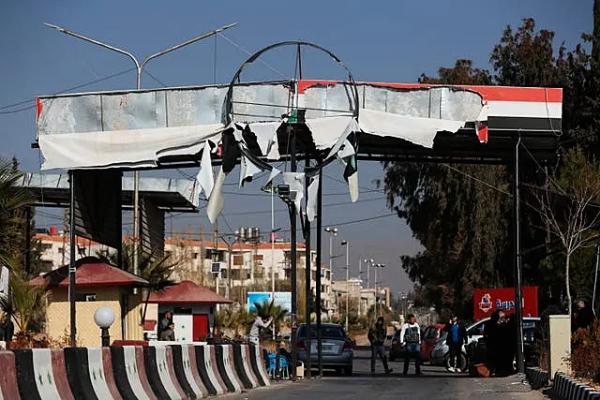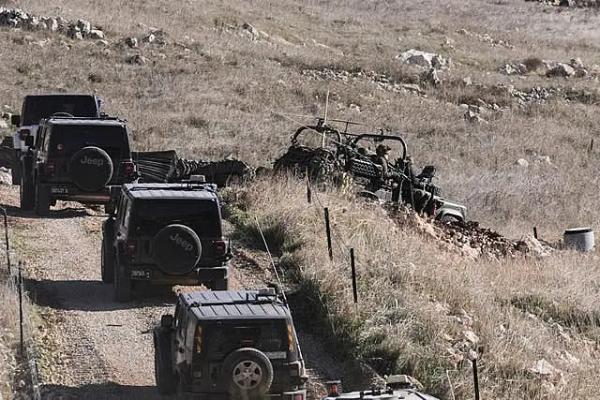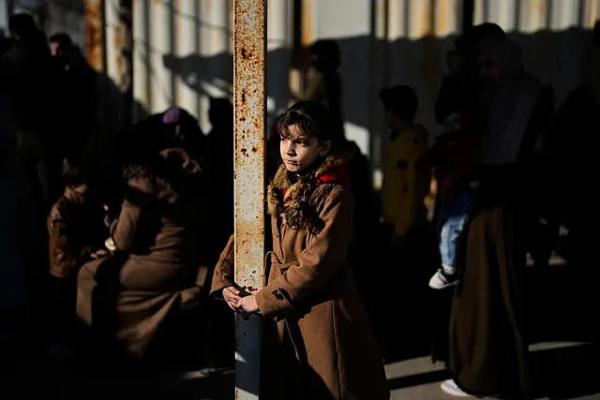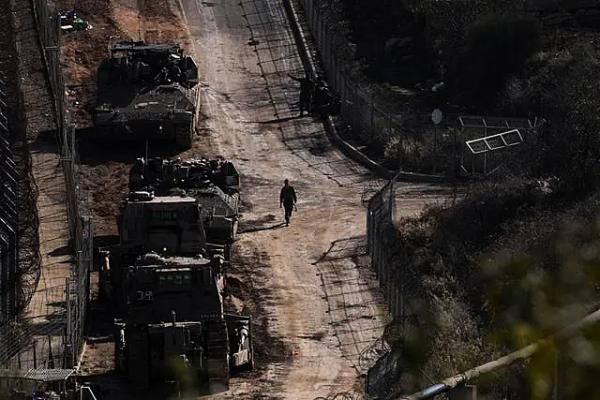
Syria’s prime minister has said that most cabinet ministers are still working from offices in Damascus after rebels entered the capital over the weekend and overthrew president Bashar Assad.
Streams of refugees crossed in from neighbouring countries, hoping for a more peaceful future.
But there were already signs of the difficulties ahead for the rebel alliance now in control of much of the country, which is led by a former senior al-Qaida militant who severed ties with the extremist group years ago and has promised representative government and religious tolerance.

The rebel command said on Monday they would not tell women how to dress.
“It is strictly forbidden to interfere with women’s dress or impose any request related to their clothing or appearance, including requests for modesty,” the General Command said in a statement on social media.
Meanwhile, some key government services had shut down as state workers ignored calls to return to their jobs, a UN official said, causing issues at airports and borders and slowing the flow of humanitarian aid.
Israel said it is carrying out airstrikes on suspected chemical weapons sites and long-range rockets to keep them from falling into the hands of extremists.
It has also seized a buffer zone inside Syria after Syrian troops withdrew.
In a separate development, the Kremlin said Russia has granted political asylum to Mr Assad, a decision taken by President Vladimir Putin.

Kremlin spokesman Dmitry Peskov declined to comment on Mr Assad’s specific whereabouts and said Mr Putin was not planning to meet with him.
In northern Syria, Turkey said allied opposition forces seized the town of Manbij from Kurdish-led forces backed by the US, a reminder that even after Mr Assad’s departure to Russia the country remains split among armed groups that have fought in the past.
Damascus was quiet on Monday, with life slowly returning to normal while most shops and public institutions were closed.
In public squares, some people were still celebrating.
Civilian traffic resumed but there was no public transport, leaving some to hitchhike.
Long lines formed in front of bakeries and other food stores.

There was little sign of any security presence, and Associated Press reporters saw a few SUVs on the side of a main boulevard that appeared to have been broken into, with their windows shattered and their doors open.
In some areas, small groups of armed men were stationed in the streets.
A video circulating online showed a man in military fatigues holding a rifle attempting to reassure residents of the Mezzeh neighbourhood in Damascus that they would not be harmed.
“We have nothing against you, neither Alawite, nor Christian, nor Shiite, nor Druze, but everyone must behave well, and no one should try to attack us,” the fighter said.
Prime Minister Mohammed Ghazi Jalali, who remained in his post after Mr Assad and most of his top officials vanished over the weekend, has sought to project normalcy.
“We are working so that the transitional period is quick and smooth,” he told Sky News Arabia TV on Monday, saying the security situation had already improved from the day before, when joyful crowds gathered in public squares and celebratory gunfire rang out across the capital.

He said the government is co-ordinating with the insurgents, and that he is ready to meet rebel leader Ahmad al-Sharaa, formerly known as Abu Mohammed al-Golani, who made a triumphal appearance at a famed Damascus mosque on Sunday.
Syrians who only days ago were working at all levels of the bureaucracy in Mr Assad’s regime were now flipping to the new reality.
At the court of Justice in Damascus, which was stormed by the rebels to free detainees, Judge Khitam Haddad, an aide to the justice minister in the outgoing government, said on Sunday that judges were ready to resume work quickly.
“We want to give everyone their rights. We don’t their rights to be wasted,” Mr Haddad told AP outside the courthouse.
“We want to build a new Syria and to keep the work but with new methods.”
Meanwhile, a Syrian opposition war monitor said a top aide to Mr Assad’s brother, Maher, was found dead in his office near Damascus.
A video that circulated on social media purportedly showed Major General Ali Mahmoud covered with blood and with his clothes burned.
The Britain-based Syrian Observatory for Human Rights said it was not clear if he was killed or died by suicide.
Maher Assad, whose whereabouts are unknown, led the army’s 4th Armoured Division, which played a major role in the civil war that erupted in 2011, after a popular uprising against Mr Assad led to a violent crackdown on dissent and the rise of an insurgency.
Sourse: breakingnews.ie






